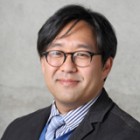Video
Publications
Public Opinion Surveys
Cooperation and Hedging: Comparing US and South Korean Views of China
- Expert
- Karl Friedhoff
- Hit
- 3,310
- Date
- 19-10-16 16:12
Introduction
While Seoul and Washington currently agree on using high-level diplomacy to encourage North Korea to denuclearize, South Korean and US approaches toward China differ and could become a source of friction between the two allies. Under President Donald Trump, the United States has confronted China through tariffs on Chinese imports and identified China as a near-peer adversary. Meanwhile, South Korean President Moon Jae-in has made efforts to end a dispute with China over the Terminal High Altitude Area Defense (THAAD) system and indicated openness to China’s Belt and Road Initiative.
Public preferences in both the United States and South Korea are not necessarily aligned with their own governments’ policies toward China. Chicago Council and Asan Institute surveys conducted in 2019 find that both South Koreans and Americans see a strengthened US-ROK alliance as an asset in dealing with China, suggesting that Washington and Seoul can afford to strengthen coordination between their policies toward China.
Key Findings
■ While Americans are divided over US tariffs on Chinese goods (49% support, 47% oppose), they decidedly prefer a cooperative approach toward Beijing. Sixty-eight percent of Americans say the United States should undertake friendly cooperation and engagement with China rather than try to limit Chinese power.
■ South Koreans are generally more cautious in dealing with China. While half prefer that South Korea undertake friendly cooperation (52%) with China, 40 percent want to actively work to limit Beijing’s power.
■ Three-quarters of South Korean respondents (78%) say that South Korea should prioritize strengthening ties with the United States over those with China, whereas 14 percent say ties should be strengthened with China over the United States.
■ In 2018, 66 percent of Americans said the United States should prioritize building up strong relations with Japan and South Korea over relations with China. Only 26 percent favored building a new partnership with China over Asian allies.
https://www.thechicagocouncil.org/publication/cooperation-and-hedging-comparing-us-and-south-korean-views-china

Karl Friedhoff
Karl Friedhoff is a fellow in public opinion and Asia policy at the Chicago Council on Global Affairs. He was previously a Korea Foundation-Mansfield Foundation US-Korea Nexus Scholar and a member of the Mansfield Foundation’s Trilateral Working Group. Friedhoff was previously based in Seoul where he was a program officer in the Public Opinion Studies Program at the Asan Institute for Policy Studies. His writing has appeared in The New York Times and The Wall Street Journal, among others, and he has been a frequent guest on both TV and radio to discuss US foreign policy in Asia, South Korea’s politics, and international relations in East Asia. Friedhoff earned his BA in political science at Wittenberg University and an MA in international commerce at Seoul National University.

Dina Smeltz
Dina Smeltz is Senior Fellow in public opinion and Asia policy at the Chicago Council on Global Affairs. With 25 years of experience designing and fielding international social and political surveys, Dina Smeltz joined the Chicago Council on Global Affairs as senior fellow on public opinion and foreign policy in 2012. She oversees the Council’s well-known annual survey of American attitudes toward foreign policy and has authored and coauthored many of the analyses based on that work. She also directs the Council’s collaboration with Russian, Mexican, Canadian, Australian, and East Asian research organizations. Smeltz has published commentary on public opinion and international issues in The Washington Post, RealClearWorld, Foreign Policy, and the Council’s survey blog (Running Numbers).
As the director of research in the Middle East and South Asia division (2001-2007) and analyst/director of the European division (1992-2004) in the Bureau of Intelligence and Research at the US State Department's Office of Research, Smeltz conducted over a hundred surveys in these regions and regularly briefed senior government officials on key research findings. Her experience includes mass public and elite surveys, as well as qualitative research. She has written numerous policy-relevant reports on Arab, Muslim, and South Asian regional attitudes toward political, economic, social, and foreign policy issues. Her writing also includes policy briefs and reports on the post-1989 political transitions in Central and Eastern Europe, and European attitudes toward a wide range foreign policy issues including globalization, European integration, immigration, NATO, and European security.
With a special emphasis research in post-conflict situations (informally referred to as a "combat pollster"), Smeltz has worked with research teams in Bosnia, Kosovo, Cyprus, Israel-Palestinian Territories, and in Iraq (2003-2005), where she was one of the few people on the ground who could accurately report average Iraqis impressions of the post-war situation. Smeltz has consulted for several NGOs and research organizations on projects spanning women's development in Afghanistan, civil society in Egypt, and evaluating voter education efforts in Iraq.
Smeltz has an MA from the University of Michigan and a BS from Pennsylvania State University.

J. James Kim
Senior Fellow
Dr. J. James KIM is the senior research fellow and director of the Center for Regional Studies at the Asan Institute for Policy Studies (Seoul). He is also a lecturer in the School of International and Public Affairs at Columbia University. Previously, Dr. Kim was an assistant professor of political science at the California State Polytechnic University (Pomona). He also served as a summer research associate at the RAND Corporation and as a statistical consultant for the Institute for Social and Economic Research and Planning at Columbia University. His primary research interests include national security, energy, public opinion, democracy, and methodology. Dr. Kim received a B.S. and M.S. in industrial and labor relations from Cornell University and an M.Phil. and Ph.D. in political science from Columbia University.

Kang Chungku
Principal Associate, Deputy Director, Assistant to the Supervisor of Research and Planning
Mr. Kang Chungku is a principal research associate working on public opinion and data analysis at the Asan Institute for Policy Studies. Mr. Kang has led the Asan Institute’s Annual Survey series, “South Koreans and Their Neighbors,” for the past decade and he also undertakes regular surveys into key foreign policy issues facing South Korea. His recent publications include “The 2024 U.S. Elections and Outlook for U.S. Allies” (November 2024) and “Comparing Allied Public Confidence in U.S. Extended Nuclear Deterrence” (February 2024). He also supports the Institute’s researchers with quantitative data analysis. Prior to joining the Asan Institute, he was a research assistant at the Korea Dialogue Academy in Seoul. His research interests include public opinion and its dynamics, quantitative research methods, survey design, and statistical data analysis. Mr. Kang received his B.A. in English and M.A. in Sociology at Korea University.

Scott A. Snyder
Scott A. Snyder is senior fellow for Korea studies and director of the program on U.S.-Korea policy at the Council on Foreign Relations (CFR). His program examines South Korea’s efforts to contribute on the international stage; its potential influence and contributions as a middle power in East Asia; and the peninsular, regional, and global implications of North Korean instability.

Ellen Swicord
Ellen Swicord is Research Associate for Korea studies and the program on U.S.-Korea policy at the Council on Foreign Relations (CFR).



